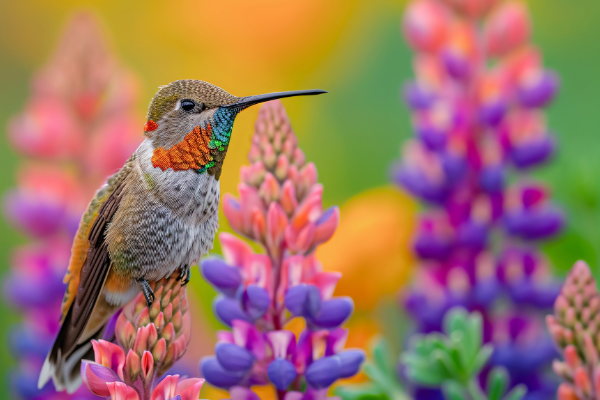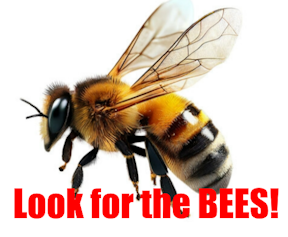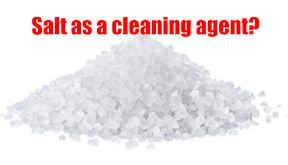Hummingbird Nectar Tips: Must-Have Tricks for Fresh, Best Feed
Keep Your Hummingbird Nectar Fresh All Winter Long: Tips for Over-Wintering Hummingbirds
Keeping your hummingbird nectar fresh all winter long is essential, especially as more people are noticing over-wintering hummingbirds, sometimes called vagrants, visiting or staying in their neighborhoods during colder months. These tiny birds, known for their incredible energy and vibrant colors, rely heavily on nectar feeders to supplement their diet when natural flowers become scarce. With a bit of care and attention, you can ensure your feathered visitors have a reliable food source throughout the winter, supporting their survival and delighting you with their presence.
Understanding Over-Wintering Hummingbirds
Most people associate hummingbirds with the spring and summer seasons, when flowers are blooming and insects are plentiful. However, some hummingbird species or individual birds defy the norm by remaining in or arriving at new areas well into fall and winter. These birds are often called “vagrants,” and they either failed to migrate or have adapted to the conditions in their new environment.
Over-wintering hummingbirds generally seek out food sources such as nectar feeders, tree sap, and small insects. Since natural flower nectar is limited during colder months, offering fresh nectar through feeders becomes vital. Providing a steady supply of fresh nectar can make the difference in whether these tiny creatures thrive through winter or struggle to survive.
Why Fresh Nectar Matters in Winter
Hummingbird nectar is not just a tasty treat; it is a critical energy source for these high-metabolism birds. During winter, when insects and flowers are scarce, artificial feeders become a lifeline. However, nectar can spoil quickly, especially in fluctuating cool to mild temperatures. Mold can develop, and fermentation can set in, both of which can be dangerous or fatal to birds.
Keeping your hummingbird nectar fresh all winter long means preventing spoilage and contamination. Spoiled nectar can discourage hummingbirds from feeding at your station, or worse, cause illness. Therefore, maintaining clean feeders and fresh nectar is key to attracting and supporting over-wintering hummingbirds.
How to Keep Your Hummingbird Nectar Fresh in Winter
-
Use the Right Nectar Recipe
The standard hummingbird nectar recipe is four parts water to one part white granulated sugar, boiled to dissolve thoroughly. No need to add red dye, as it’s unnecessary and potentially harmful. For colder months, you can make smaller batches more frequently to ensure freshness. -
Adjust Feeding Frequency Based on Temperature
In cooler weather, nectar may last longer without spoiling, but fluctuations near or above freezing can accelerate microbial growth. Check and change the nectar at least every 3-4 days during mild temperatures. If temperatures drop consistently below freezing, daily checks may suffice as the nectar will freeze and preserve itself. -
Keep Feeders Clean
Mold and bacteria can build up quickly on feeders. Clean feeders weekly with hot water and a mild detergent or a vinegar solution. Be sure to rinse thoroughly to remove all soap residue. In cold weather, cleaning your feeder every time you change the nectar is ideal. -
Position Feeders Wisely
Place feeders in a location that receives sunlight during the day to prevent freezing and encourage hummingbirds to visit. Avoid overly shaded or windy spots, as they can accelerate nectar spoilage or create dangerously cold areas for the birds. -
Consider Multiple Feeders
If you live in an area with several over-wintering hummingbirds, having multiple feeders can reduce crowding and aggression, ensuring all birds have access to fresh nectar and reducing contamination risk.
Supporting Over-Wintering Hummingbirds Beyond Nectar
In addition to maintaining fresh nectar, consider other ways to help over-wintering hummingbirds survive colder months:
- Plant Native Winter-Blooming Flowers: Some native plants bloom late into fall or even winter in mild climates, providing natural nectar sources.
- Provide Shelter: Dense shrubs or trees near feeders offer shelter from harsh winter winds and predators.
- Avoid Pesticides: Insects also provide vital protein for hummingbirds, especially during late winter and early spring.
Final Thoughts
Keeping your hummingbird nectar fresh all winter long is a rewarding effort that benefits both you and the hummingbirds gracing your yard. With more vagrant and over-wintering hummingbirds appearing in neighborhoods, your support can make a tangible difference in their survival. By understanding their needs and taking simple steps to keep nectar fresh and feeders clean, you create a welcoming environment that helps these remarkable birds thrive, even when winter tries to hold the upper hand. Keep your feeders humming with fresh nectar, and enjoy the rare and beautiful company of hummingbirds during the colder months.






